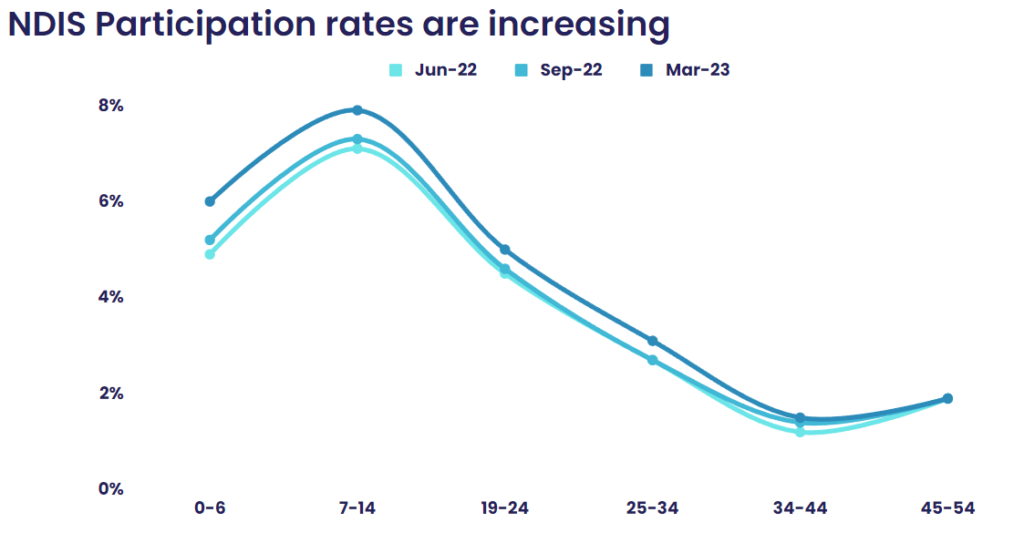In the dynamic landscape of disability support, the role of support coordinators and early intervention coordinators is pivotal. Their tireless efforts ensure that individuals receive the support they need, when they need it. However, the increasing demands of the role present a set of unique challenges that require innovative solutions.
The Challenge of Rising Participation Rates
Recent data shows a steady increase in participation rates across various age groups. The participation rate for males in the 0-6 age group increased from 4.9% in June 2022 to 6.0% in March 2023. The 15-18 age group saw an increase from 4.5% to 5.0% during the same period. This trend underscores the growing demand for support services and the increasing complexity of matching clients with available therapists.

The Dilemma of Low Utilisation Rates
Despite the increasing participation rates, utilisation rates in capacity building remain relatively low. As of March 2023, the utilisation rate for the 0-6 age group was 62%, while the 15-18 and 7-14 age groups had utilisation rates of 56% and 64% respectively. This gap between participation and utilisation rates highlights the challenges faced by support coordinators in connecting clients with the services they need. Increasingly, we’re hearing frustrations in the support coordination community that adequately trained and experienced professionals are becoming difficult to find, or have long waiting lists. This often means that support coordination time is wasted, and the impact of quality early intervention is hampered.

Regional Disparities
The challenge is further compounded in regions with lower utilisation rates. For instance, Central Australia and Bundaberg saw a decrease in utilisation rates between June 2022 and March 2023. Even regions with stable utilisation rates, such as Western NSW and Toowoomba, present challenges due to the sheer demand for services.
Our part
At TherapyNow, we value the critical role support and early intervention coordinators play in serving our communities. Recognising the complexity and increasing demands of your roles, we are committed to enhancing our offerings to facilitate your work.
With a primary aim to expedite the process of connecting individuals to support services, we are making our live therapist availability data readily accessible. This tool has been tailored to provide an immediate snapshot of local therapist availability within a two-week timeframe, enabling you to make informed decisions swiftly and efficiently.
We also deeply appreciate the importance of quality early intervention and the necessity of addressing the needs of underserviced groups. As part of our efforts in this direction, we are on the brink of launching an innovative out-of-home care approach. This program is specifically designed to empower selected therapists with trauma-informed strategies and tools, facilitating their role in the case coordination process and fostering more effective support for these groups.
Your experiences and insights are vital to us in refining our approach and enhancing our offerings. We invite you to share your experiences and suggestions as we continue to develop tools and strategies to better serve the disability support community. Your voice matters in our journey towards creating a more inclusive and efficient support ecosystem.
